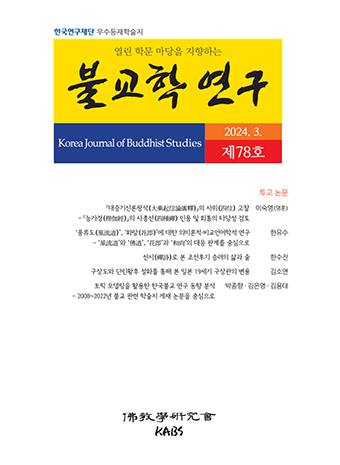Abstract
References
Sorry, not available.
Click the PDF button.
Information
Many problems of modern society such as social conflict, environmental contamination, and eco-destruction threatening our happiness and sustenance are rooted in the modern western world view. Recently, the modern western world view in various fields has been challenged and changed into a new paradigm. It has been changed from the atomistic world view considering the world as separated parts into the holistic world view considering the world as a unified whole in co-dependent relations. This change of the world view has been succeeded to a change of human view. Furthermore, this change of the world view has been asking emergence of new ethics.In this paper, I search for new ethics in my understanding that the new world view is accordance with the Buddhist theory of dependent-arising. According to ethics considering human beings as individuals, the most important value is "justice" of fair distribution and ownership among individuals. But various problems of modern society cannot be solved through realizing this kind of "justice." What we need is new ethics based on a fundamental change in understanding human beings. The Buddhist notion of non-self rejects the self as an individual substance, and presents the extended self into others and nature through life. Buddhist ethics understanding human beings in non-duality of the self and others is ethics of compassion that gives the highest value to the mind of "compassion" treating one's own self and others equally.Ethics of compassion does not define a human being as a substantial self but it considers him/her as a being who forms oneself by one's own efforts. It sees that the most valuable life is a compassionate life which is required and justified by the theory of dependent-arising. Furthermore, ethics of compassion suggests non-self realized through a compassionate life as the most idealistic human life.
Click the PDF button.
- Publisher :Korean Association of Buddhist Studies
- Publisher(Ko) :불교학연구회
- Journal Title :Korea Journal of Buddhist Studies
- Journal Title(Ko) :불교학연구
- Volume : 12
- No :0
- Pages :587~608


 Korea Journal of Buddhist Studies
Korea Journal of Buddhist Studies






